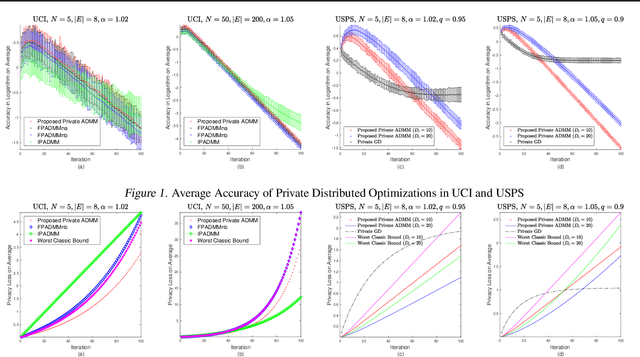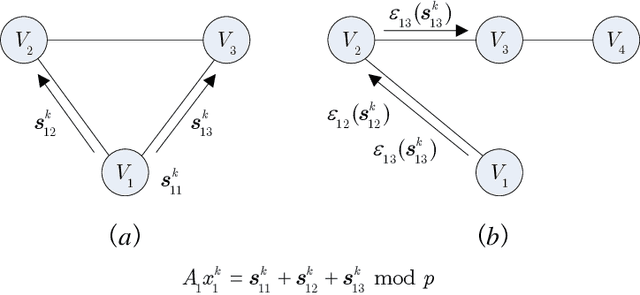Srini Devadas
On Differentially Private Stochastic Convex Optimization with Heavy-tailed Data
Oct 21, 2020



Abstract:In this paper, we consider the problem of designing Differentially Private (DP) algorithms for Stochastic Convex Optimization (SCO) on heavy-tailed data. The irregularity of such data violates some key assumptions used in almost all existing DP-SCO and DP-ERM methods, resulting in failure to provide the DP guarantees. To better understand this type of challenges, we provide in this paper a comprehensive study of DP-SCO under various settings. First, we consider the case where the loss function is strongly convex and smooth. For this case, we propose a method based on the sample-and-aggregate framework, which has an excess population risk of $\tilde{O}(\frac{d^3}{n\epsilon^4})$ (after omitting other factors), where $n$ is the sample size and $d$ is the dimensionality of the data. Then, we show that with some additional assumptions on the loss functions, it is possible to reduce the \textit{expected} excess population risk to $\tilde{O}(\frac{ d^2}{ n\epsilon^2 })$. To lift these additional conditions, we also provide a gradient smoothing and trimming based scheme to achieve excess population risks of $\tilde{O}(\frac{ d^2}{n\epsilon^2})$ and $\tilde{O}(\frac{d^\frac{2}{3}}{(n\epsilon^2)^\frac{1}{3}})$ for strongly convex and general convex loss functions, respectively, \textit{with high probability}. Experiments suggest that our algorithms can effectively deal with the challenges caused by data irregularity.
On Privacy-preserving Decentralized Optimization through Alternating Direction Method of Multipliers
Feb 16, 2019

Abstract:Privacy concerns with sensitive data in machine learning are receiving increasing attention. In this paper, we study privacy-preserving distributed learning under the framework of Alternating Direction Method of Multipliers (ADMM). While secure distributed learning has been previously exploited in cryptographic or non-cryptographic (noise perturbation) approaches, it comes at a cost of either prohibitive computation overhead or a heavy loss of accuracy. Moreover, convergence in noise perturbation is hardly explored in existing privacy-preserving ADMM schemes. In this work, we propose two modified private ADMM schemes in the scenario of peer-to-peer semi-honest agents: First, for bounded colluding agents, we show that with merely linear secret sharing, information-theoretically private distributed optimization can be achieved. Second, using the notion of differential privacy, we propose first-order approximation based ADMM schemes with random parameters. We prove that the proposed private ADMM schemes can be implemented with a linear convergence rate and with a sharpened privacy loss bound in relation to prior work. Finally, we provide experimental results to support the theory.
 Add to Chrome
Add to Chrome Add to Firefox
Add to Firefox Add to Edge
Add to Edge